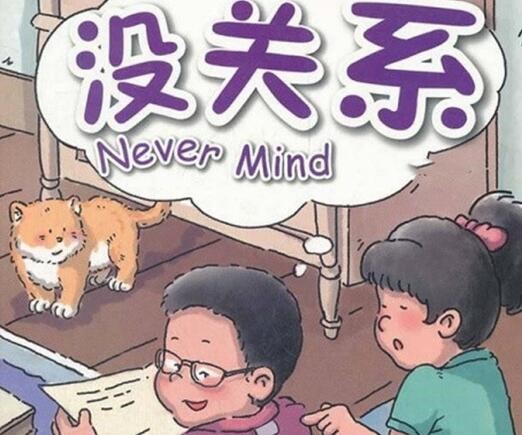The Chinese expressions of “It’s Okay” are as many as “I’m sorry.” But do you know which one is best for the different situations?
Imagine if someone stepped on your foot while climbing a mountain, took over your private parking space, or spilled orange juice on you. They say sorry in Chinese, but you don't know what to say. How Embarrassed!
Luckily, we're here to save you. Learning how to respond to an apology is as simple as learning how to express your apology. In addition, these replies can be used interchangeably because they are not form-dependent.

5 Ways to Say "It’s Okay" in Chinese
1- 没关系 (Méi Guān Xi) ----It doesn’t matter.
“没关系” means it doesn’t matter. The most commonly used way to say no worries in Chinese is “没关系”. Using this expression can make the person feel like it’s not a big deal. This response is also a good reply, because it shows that you realize that it wasn't malicious and that you've put it behind you.
Example: A: I came late, sorry about that! (对不起,我来晚了) B:It’s okay! (没关系!)
click to listen the Chinese
2- 没事(Méi Shì)---It’s nothing.
Another way we can translate this is “It’s Nothing.” It also helps to make the other person stop feeling bad about what has said and what was has done. Compare to “没关系”, “没事” is more colloquial.
Example A: Sorry, I forgot to bring my umbrella. (不好意思,我忘记带伞了。) B:It’s Nothing. (没事!)
click to listen the Chinese
3 – 不要紧 (Bú Yào Jǐn)---It’s not a big deal.
if you say 不要紧, it means that you don’t think it’s a big deal. It’s usually used in spoken language. In other situations, it can also mean “I don’t care” or “whatever it is, it is okay with me“.
Example A: Sorry, I stepped on your foot. (不好意思,我绊到了你的脚。) B:It’s not a big deal. (不要紧。)
click to listen the Chinese
4 – 这次就算了 (Zhè Cì Jiù Suàn Le) — Forget about It.
What if you're already so angry about something that even after they apologize, you still haven't completely forgiven him/her. You can say “这次算了吧”, which means you really cannot accept something, but since it's just "this one time," you'll try to get over it. The extended meaning of it is “next time it’s not OK“!
Example A: Teacher, I forgot to bring my homework book.(老师,我忘记带家庭作业本了) B:Alright, I will forget about it. (好吧,这次就算了。)
click to listen the Chinese
5– 这不怪你(Zhè Bú Guài Nǐ)
This expression indicates that it is not the fault of the person who is apologizing. The person who apologizes is also generally trying to be polite. It's a good expression when it's really not one person's responsibility, or you just want to make them feel better.
Example 1: A: I’m sorry. The project was not completed on time.(对不起,项目没有按时完成。) B: This is not your fault. I should also be responsible for this(这不怪你, 我也该为此负责。)
click to listen the Chinese
As you can see, there are so many different ways of how to say “It’s okay” or “No worries” in Chinese. The next time someone apologizes to you in Chinese, try these expressions to make them think "it's alright."
Top 20 Most Common Chinese Characters to Learn
China Entry and Travel Restrictions in 2021
Baggage Rules of China Railway





